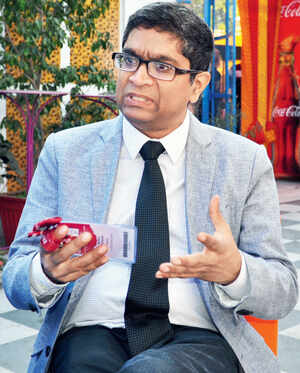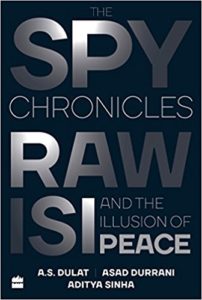Every few months some Pakistani Nationalist gets upset with me when I say mean things about their beloved TNT (Two Nation Theory), and wants me to tell them what MY alternative is.. At the same time, some Hindutvvadis will jump in with “see, this is what Pakistan is really about, how can we ever have peace”. The latest was over this speech by the Pakistani army chief:
So here goes another attempt at trying to explain myself..
Background: This is my article on the ideology of Pakistan from 2013. Please do read it if you want to know more about that.. the main point is that Pakistan was insufficiently imagined prior to birth; and that once it came into being, the mythology favored by its establishment proved to be self-destructive; and that it must be corrected (surreptitiously if need be, openly if possible) in order to permit the emergence of workable solutions to myriad common post-colonial problems. I also argue that Having adopted Islam and irrational denial of our own Indian-ness as core elements of the state, the ‘modern’ factions of the establishment lack the vocabulary to answer the fanatics. This has allowed a relatively small number of Islamist officers to promote wildly dangerous policies (like training half a million armed Islamic fanatics in the 1990s) without saner elements being able to stop them. This unique “own-goal”, unprecedented in the history of modern states, is impossible to understand without reference to the Islamic and irrationally anti-Indian element in the self-image of the Pakistani state.
So what can be done? I believe it is the historic task of the Pakistani bourg to either make Pakistan a more normal country, or to watch it broken up. i.e. the historic task of the Pakistani bourgeoisie today is to defang the two-nation theory (TNT). Pakistani nation state is based on an intellectually limited and dangerously confrontational theory of nationalism. The charter state of the Pakistani bourgeoisie is the Delhi Sultanate.. the state valorizes turkic colonizers and looks down on the local people they colonized, and this conception lacks sufficient connection with either history or geography. Bangladesh opted out of this inadequate theory within 25 years, though its trouble may not be over yet. West Pakistan, now renamed “Pakistan” to obviate the memory of past losses, is now a geographically and economically viable nation state, but the military has failed to update the TNT and in fact, made a rather determined effort to complete the project using “militant proxies” in the 1990s, and if the Pakistani army chief is to be believed, he takes this commitment to TNT seriously even today. But the ideology in question is not compatible with regional peace or global capitalism and needs to be updated and brought in line with current requirements. This is now the great task of our under-prepared bourgeoisie. Continue reading The Historic Task of the Pakistani Bourgeoisie


 In this episode we talk to eminent historian
In this episode we talk to eminent historian 